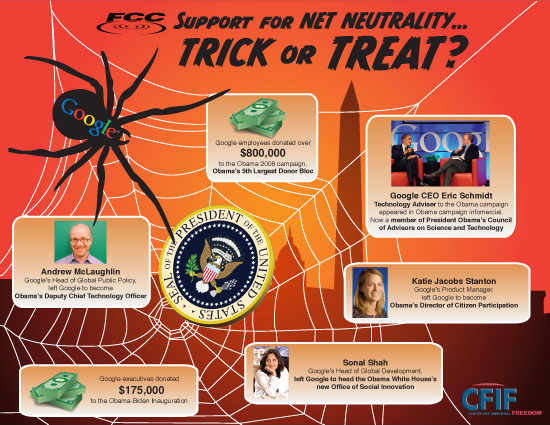So it appears that Google isn’t so opposed to intellectual property (IP) rights after all. As long as it comes to its own, that is.
That’s the upshot of a high-profile federal lawsuit in which Google subsidiary Waymo accuses Uber of stealing its patents and trade secrets:
Waymo LLC, the self-driving car unit of Google parent Alphabet Inc., asked a federal court on Friday to halt Uber Technologies Inc.’s efforts to develop autonomous vehicles allegedly based on stolen design secrets. The request was made to the U.S. District Court in San Francisco, following a suit filed last month accusing Anthony Levandowski, a former key manager in the Google self-driving car project, of taking 14,000 files before quitting last year to create a self-driving truck maker. That startup, called Otto, was quickly acquired by Uber last year…
Waymo also filed an expert witness statement to the court from a laser-optics physicist who said he believes Uber’s laser-sensor technology uses Waymo’s trade secrets and infringes on its patents. Waymo also added a fourth patent to its infringement claims in an amended suit on Friday.”
We take no position on the merits of the case, and maintain no particular grudge against Google as a company. But its leading role in undermining IP rights in the United States, which made us the most inventive, artistically innovative and prosperous nation in human history, makes its current pleas a bit ironic, to put it mildly.
For years, we’ve been alerting readers to the endless, destructive litany of ways in which Google has undermined IP and public policy for its own benefit:
Here’s the irony. Google somehow manages to arouse righteous legions of supposed anti-corporatist activists on its behalf (think sunshine anarchists and libertarians of convenience). Yet Google itself exercises more self-serving, crony capitalist throw weight than any counterpart entity.
For example, consider so-called ‘Net Neutrality,’ with which conservatives and true libertarians are now familiar, that would suddenly empower the federal government to micromanage Internet service. Google stands to gain enormous free-rider benefits, which explains why it is the chief corporate proponent of that proposed regulatory expansion.
Or think of Google Books, which posts the text of books that Google has gone ahead and scanned for viewing on its site. Who cares if Google hasn’t first obtained permission from the actual authors and creators, right? Google counts on the sheer cost and hassle of litigation to discourage individual creators against putting up a legal fight to protect their rights.
How does that square with ‘Don’t Be Evil?’
Or how about this? Last August, Google voluntarily agreed to a $500 million fine for assisting Canadian online pharmaceutical sellers in accessing American consumers. That amount is an entire Solyndra, and one of the largest forfeiture penalties in U.S. history. Google fully admitted that it, ‘improperly assisted Canadian online pharmacy advertisers to run advertisements that targeted the United States,’ and prosecutors added that Google, ‘was fully aware as early as 2003 that generally it was illegal for pharmacies to ship controlled and non-controlled prescription drugs into the United States from Canada.’
But once again, it’s not Google’s health or property at stake, so who cares?”
More recently, Google has used its enormous influence within the Obama Administration to push the Obama Federal Communications Commission’s (FCC’s) destructive cable set-top box proposal, which would have compromised consumer privacy, as well as the Obama FCC’s “privacy” regulation of 2016, which Congress just rightfully rescinded.
Intellectual property rights were so important to our Founding Fathers that they specifically safeguarded them in the text of the Constitution. Since that time, IP rights have provided the “secret sauce” by which we’ve achieved such incomparable technological, artistic and influential supremacy.
Regardless of the merits of the Google’s litigation against Uber, it has every right to safeguard its own IP rights. It would be nice if it finally dawned on them that they don’t wear hypocrisy well, however, and that they should stop undermining the same protections for others.




 CFIF Freedom Line Blog RSS Feed
CFIF Freedom Line Blog RSS Feed CFIF on Twitter
CFIF on Twitter CFIF on YouTube
CFIF on YouTube